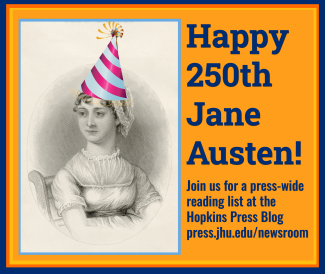
Johns Hopkins UniversityEst. 1876
America’s First Research University
Reading and the Making of Time in the 18th Century

One of the claims I make in Reading and the Making of Time in the Eighteenth Century is that the feeling of not having time to read is almost as old as books themselves. We tend to imagine that when books were new media people struggled to put them down, a bit like tablets or smartphones today. But I went into this project knowing that many eighteenth-century readers felt as distracted from their books by work, by duty, and by magazines, broadsheets, and newspapers as I do by my email. Even back then, more sustained reading was something people hoped to do, or to have done -- something they did in snatches -- something dependent on the ebb of work that came with Sunday or the seasons.
Since finishing the project I’ve had cause to think a bit about this claim especially as I’ve started going with my family to a remote cabin without Internet. Being there has made me realize that all of us, and my kids in particular, find it much easier to sink into books there than they do at home. Perhaps our modern lack of reading time is more specifically connected to being online and at work than I admit in Reading and the Making of Time? Perhaps if we just turned down the wattage on the other kinds of online reading we do all the time, books would come back naturally into focus?
I’m a little swayed by this idea, especially as a parent and a teacher. But I’m not as convinced of the centrality of the book format, or by reading as an activity, as some of my colleagues and friends. Researching Reading and Making of the Time, and reading book historical critics like Deidre Lynch and Leah Price, has taught me that sometimes books matter as much as things unread, or re-read, collected or leafed through as they do as things actually read. I wouldn’t be so averse to students doing less print reading if I thought they had other media as good to hope and plan and revisit with.

That gesture of packing books in a suitcase, hopeful of a trip producing the kind of relaxation and privacy it takes to read, seems to me a good one even if we lug them home again unopened. But of course there must be other formats that could help us imagine leisure to come. The PDF, which Lisa Gitelman writes about so well in Paper Knowledge, or the audio file, discussed by Matt Rubery in The Untold Story of The Talking Book, are important counterexamples. I’m fascinated by the particular way bound pages make the future into something that is concretely and randomly accessible before it’s actually read, but I don’t think books to have the monopoly on making time something we handle and store.
Although Reading and the Making of Time is mostly historical, I write quite a bit about my own life as a reader, a teacher, and a parent. Those interludes came naturally to me in the writing process – it seemed almost dishonest to withhold them given that I was writing about the historical problem of being an aspirant working reader, and often a woman to boot.
But I understand the mixed reactions I've had to throwing autobiography so casually into literary historical mix. I love academic writing as a mode of argument and insight independent of the personal. I’m a great fan of a recent essay by Emily Hodgson Anderson that stresses the beauty of academic writing allowing the writer to stay in the shadows of her argument. Even as the kind of teacher who tells students to use the first person, I’m always horrified when they bring me their creative pieces to read. But many of my favourite academic writers do draw explicitly on their own experience of class or of sexuality. Eve Sedgwick gets this balance beautifully right but so do Richard Hoggart and Carolyn Steedman. The history of media use invokes for me an equivalent kind of invitation to look at our own habits. I’ve tried to do justice to this in Reading and the Making of Time without compromising book and media history as fields of study that seem to need the best kinds of historical and theoretical distance we can muster at the moment.
I hope that Reading and the Making of Time makes theory and literary history good to read. But also that it brings our current sense of being time-strapped workers into focus as a problem humanists can help solve. As Michel Serres points out, it can seem unfair to see a young Noble Prize winner in the sciences receiving a prize next to an elderly humanities scholar: why do lives of reading take so much time? Why are there no shortcuts to a literary life? The answer, it seems to me, is that we should think less about finding and making time to read as instrumental to leading a good life and more about giving the time that they take as its own answer to happiness.
Christina Lupton is an associate professor at the University of Warwick. She is the author of Reading and the Making of Time in the Eighteenth Century and Knowing Books: The Consciousness of Mediation in Eighteenth-Century Britain.


